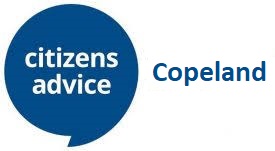Money Confidence
Select advice topic

You can use savings accounts to put away money that you’d like to save for the future, for emergencies or to buy expensive purchases like a new car or a holiday. There are lots of different types of savings accounts, we’ve explained them here…
- This is a basic savings account where you save and get paid interest on your savings
- Usually, receive a better return compared to your current account
- You can open an account with a deposit of £1
- You withdraw your money whenever you need it
- Savings are protected by the Financial Services Compensation Scheme (FSCS) up to £85,000
Regular savings accounts
- You agree to pay in a regular amount each month — usually between £10 and £500
- You may have to commit to paying this over a minimum number of months — usually 10 or 11 months
- You might need a current account first in order to qualify for the regular savings account
- The bank or building society will give you a higher interest rate on your savings compared to current or instant access accounts
- Savings are protected by the Financial Services Compensation Scheme (FSCS) up to £85,000
Cash Individual Savings Account (ISA) (there is also a Junior Isa for anyone under 18 which is managed by a parent/guardian)
- Your savings grow tax-free
- You get an annual allowance where you can save without paying any income tax
- The allowance for 2023/24 tax year is £20,000
- A Cash ISA is usually a simple savings or deposit account
- You can only open one Cash ISA a year however you can transfer to another Cash ISA or a Stocks and Shares ISA with another provider during the tax year
- Savings are protected by the Financial Services Compensation Scheme (FSCS) up to £85,000
Credit union savings accounts
- To become a member you have to have something in common such as where you live, your job, where you work etc
- There are several ways you can save e.g. through a local collection point, by direct debit or money deducted from wages
- Most credit unions don’t give you interest on your savings, instead, you earn a ‘dividend’ (a share of their annual profits made)
- Savings are protected by the Financial Services Compensation Scheme (FSCS) up to £85,000
- You can usually withdraw money at any time

- Junior ISAs let you (the parent, carer or guardian), save and invest on behalf of your child under 18
- It works in the same way as a Cash ISA where you get an annual allowance and you don’t have to pay income tax on your earnings below this allowance
- The Junior ISA allowance is £9,000 for the tax year 2023/24
- The account and the money belongs to the child and they can’t usually withdraw it until they’re 18
- When the child turns into an adult (18) the account automatically turns into an adult ISA
- Savings are protected by the Financial Services Compensation Scheme (FSCS) up to £85,000
Sharia-compliant savings
- A savings account in accordance with Islamic law that is FSCS protected and regulated by the FCA
- Savings grow through Sharia-compliant profits, not through interest and instead of an ‘annual interest rate’, you will earn an ‘expected profit rate’
- Although accounts are tailored for those who follow the Islamic faith, accounts are open to anyone
- Providers will generally not invest or lend money to businesses that provide goods or services which are against Islamic principles such as alcohol, tobacco and gambling
- If using a Financial Conduct Authority (FCA) regulated and UK-authorised bank, building society or credit union — your savings of up to £85,000 is protected by the Financial Services Compensation Scheme (FSCS)
There’s also lots more useful information on the Money Helper website.

Investing: the basics
Investments are assets or items that you buy or pay into with the goal that over time the item will increase in value. You need to be really careful when it comes to investments as there is a risk that you could receive less than you pay in. The value of investments can go up as well as down, they can also end up being worth nothing at all so it is important to consider the risks as well as the returns. A return is simply the profit made on an investment over a period of time.
When considering investing, one option available to you is to take professional financial advice. There will usually be a cost to this, but financial advisers can look at your circumstances and your financial plans and recommend products to help you meet your needs. More information can be found on our website.
If you own more than one asset or type of investment then this is called your portfolio. More information about the most popular types of investment can be found on the Money Helper website.

